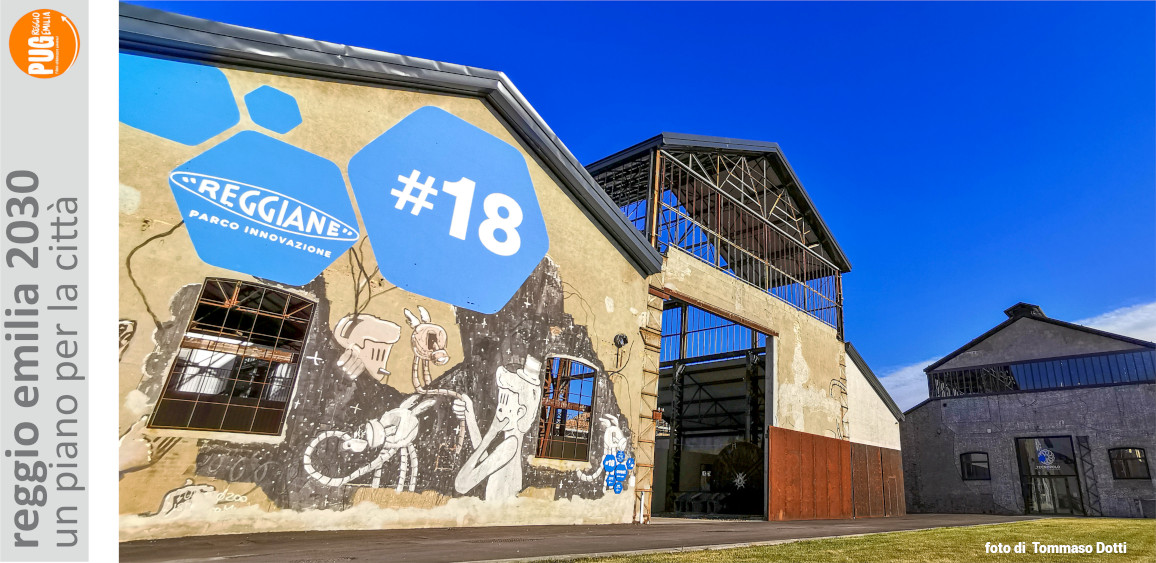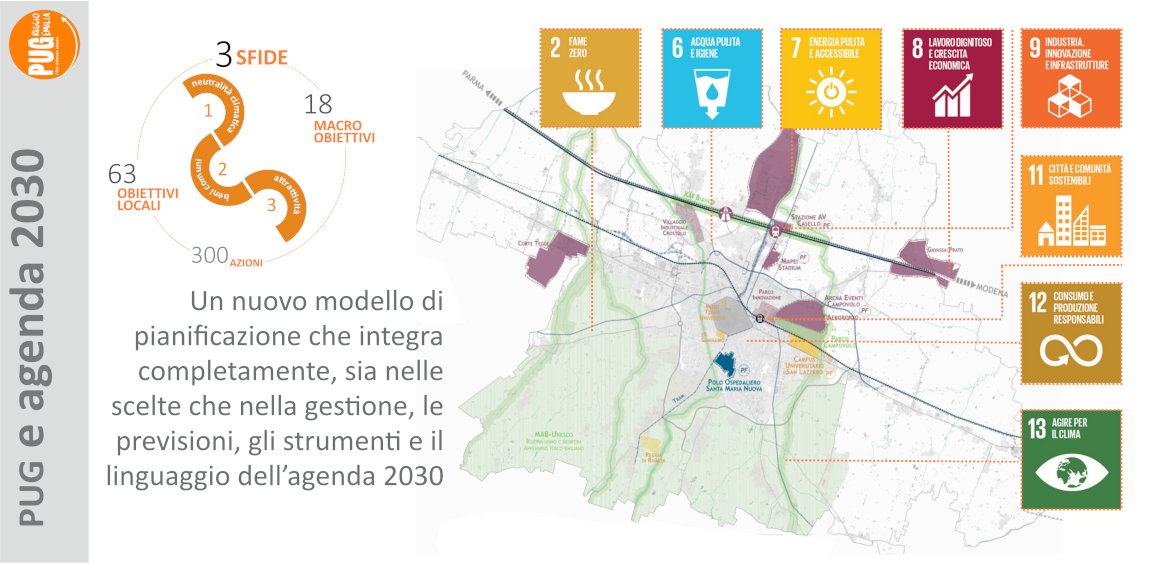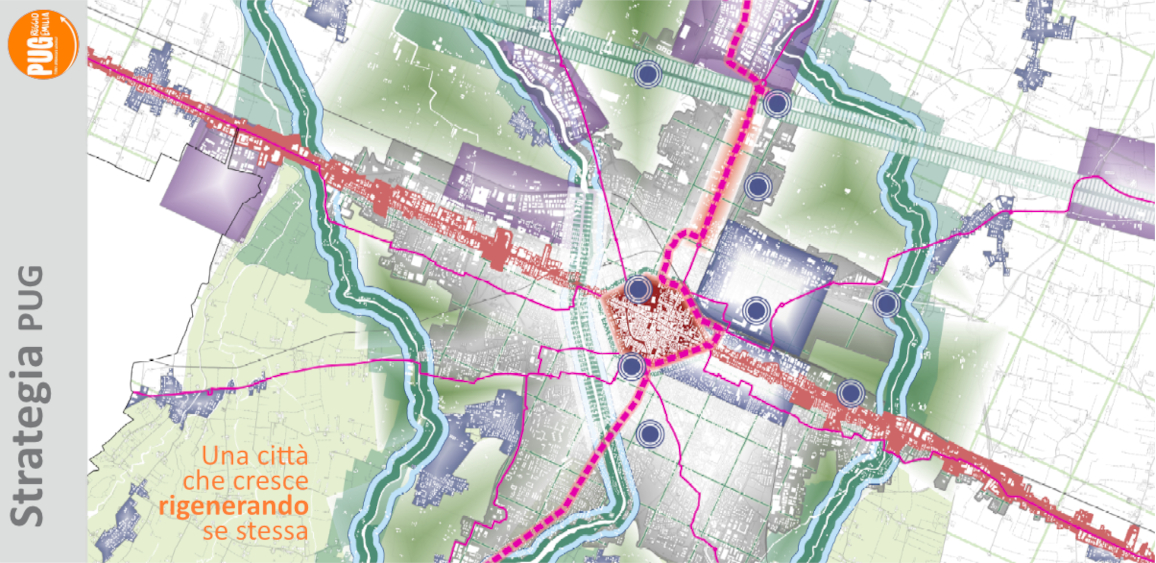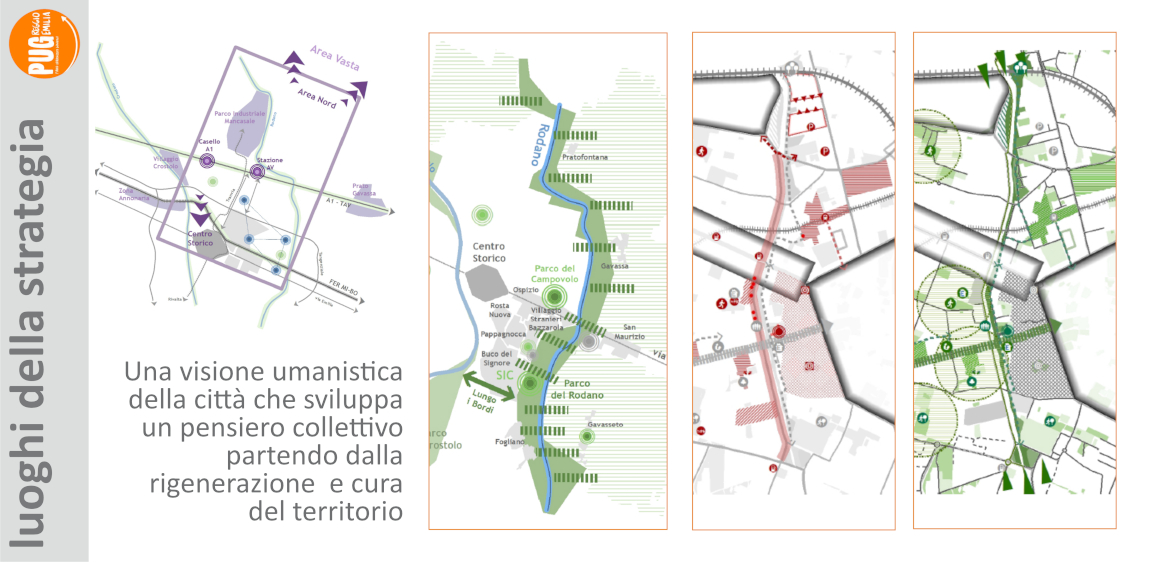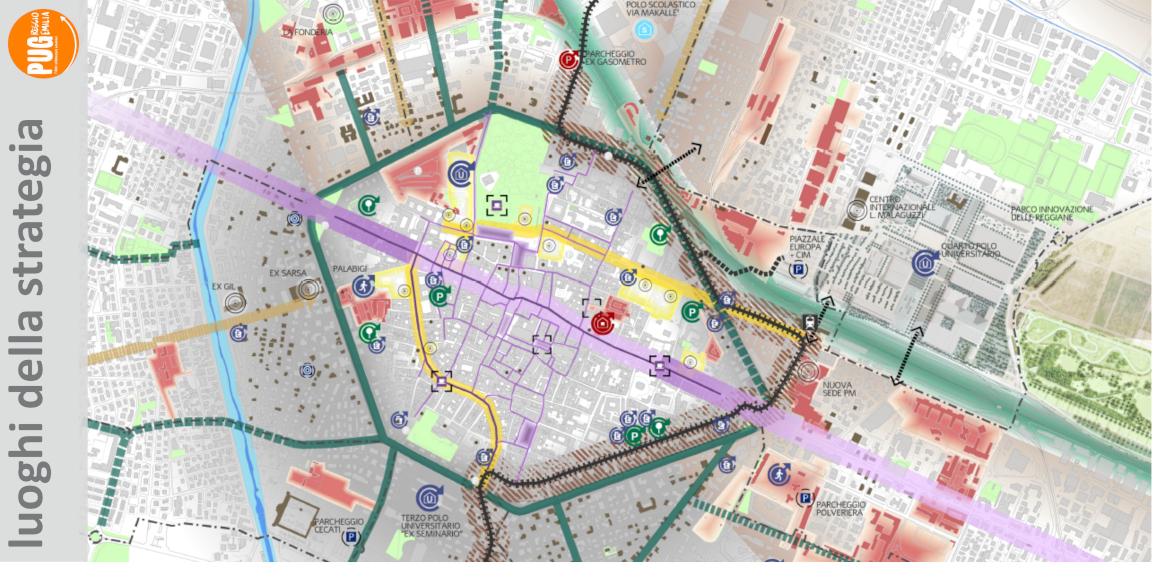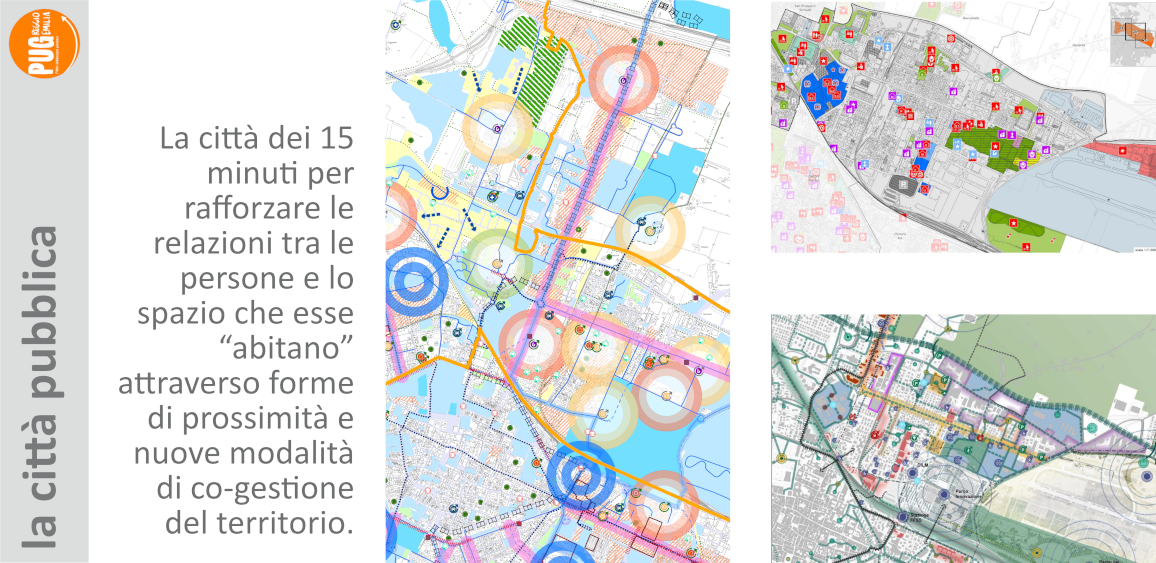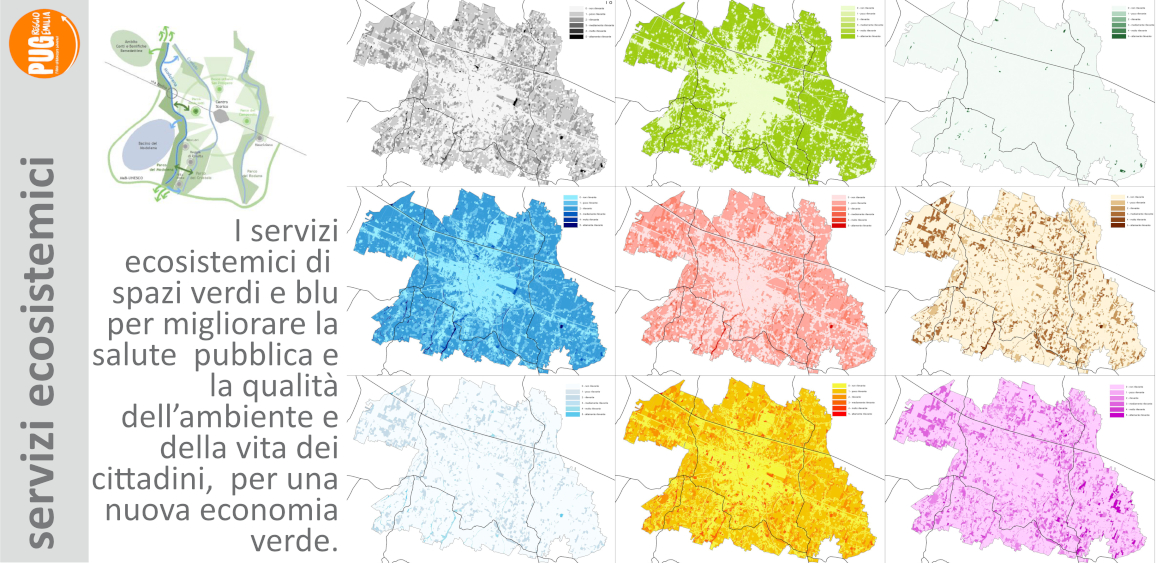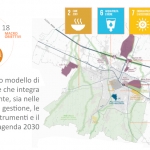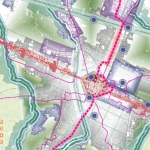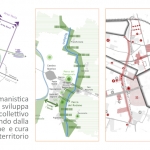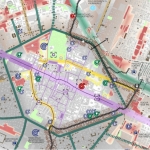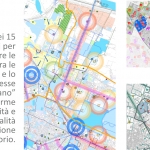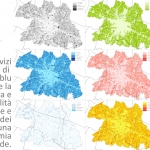From the analysis of the context, the strengths and weaknesses of the city and its community, the objectives of the General Urban Plan (PUG) of Reggio Emilia have been defined in order to align with the 2030 agenda towards a greater quality and sustainability of life.
The plan has two goals: urban regeneration, conceived as the only opportunity to develop and innovate the city, definitively separating the duality of development and consumption that characterized the period of the building and demographic boom, and the care of the city and the community, through the requalification of existing facilities, to make them more efficient and closer to the needs of the city and its inhabitants. The development guidelines of the Plan, which define the sense and priorities for the development, are defined by three challenges.
Climate neutrality is a necessary condition for higher quality and sustainability of life, as well as to create the conditions for further development of the local economy, keeping together the high production capacity of the area, the unfavorable climatic context, and a challenge as ambitious as urgent as that of fighting climate change.
The management and qualification of common goods, which contribute to raise the level of quality of life and social cohesion, are declined in the Community Plan, a new proposal for the design and redevelopment of services, starting from the identified needs of the community, with the aim of strengthening the relationships between people and the space they “inhabit” through forms of proximity and new ways of co-management of the territory.
The third challenge is attractiveness, a key element to promote investment in the area with high added value, employability and sustainability: it focuses on the redevelopment of Large Area Poles and large production poles with simplified rules and building incentives, improving safety, accessibility, connectivity.
Italiano
